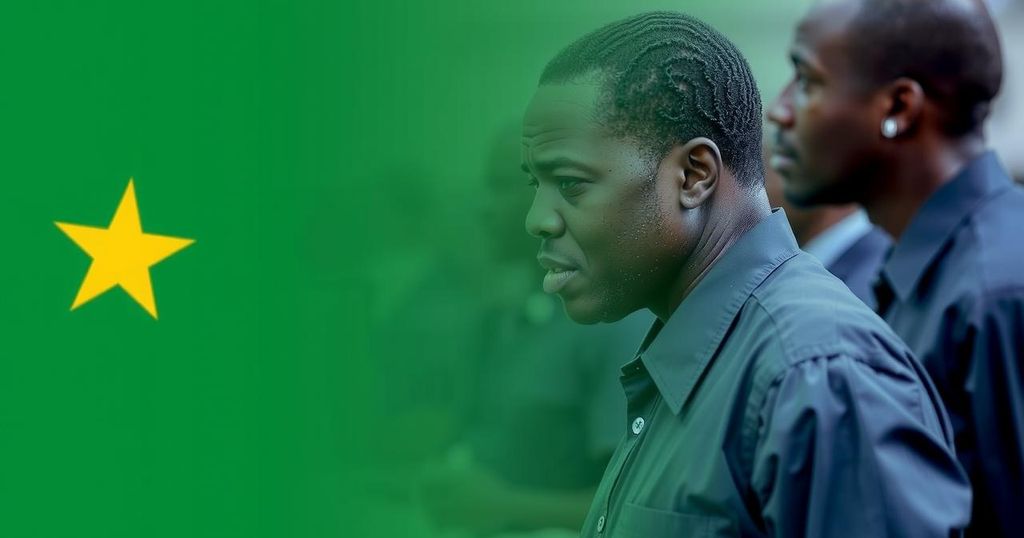South Sudan’s Extended Transition Period and Postponed Elections: A Regrettable Development

The extension of the transitional period in South Sudan until February 2027 has prompted significant frustration among citizens. The UN has emphasized the urgency for political leaders to adopt compromises that will lead to a successful implementation of the peace agreement and upcoming elections, which are now scheduled for December 2026. Ongoing challenges, including violence and humanitarian issues, further complicate the situation, necessitating decisive action from all stakeholders involved.
The UN Special Representative for South Sudan, Nicholas Haysom, addressed the Security Council concerning the recent extension of the transitional period in the country and the postponement of its inaugural general elections, initially scheduled for next month. This extension, which pushes the elections to December 2026 and the transition period to February 2027, has sparked significant frustration among the South Sudanese people, who feel disillusioned by the lack of political progress and the ongoing failure to implement the peace agreement established to foster a democratic transition. Since South Sudan’s independence in 2011, political strife has persisted, notably between President Salva Kiir and Vice-President Riek Machar, resulting in a humanitarian crisis. The peace agreement, officialized in 2018, aimed to stabilize the region, yet the recent delays further impede action. Haysom emphasized the necessity for the nation’s leaders to compromise and implement the required steps to meet the milestones set by this agreement. In the interim, Haysom has collaborated with various stakeholders, including political leaders, civil and faith-based groups, to prioritize urgent reforms. However, he indicated that the implementation of previously agreed-upon plans continues to lag, as national political interests dominate discussions. He warned that the newly extended timeline should not be perceived as an opportunity for complacency, urging leaders to take decisive actions that will facilitate progress. Haysom reiterated the critical nature of the situation, stating, “the clock on South Sudan’s fourth extension has started ticking.” He presented a framework for urgent benchmarks that the parties involved can address immediately, such as the establishment of Necessary Unified Forces and enhancements in civic education and voter registration. The UN mission is committed to supporting the National Elections Commission while emphasizing the importance of building a nurturing civic environment for South Sudan’s upcoming elections. In addition to electoral challenges, Haysom also highlighted the prevailing issues of violence, humanitarian needs, and flooding that exacerbate the difficulties faced by the nation. Reports of civilian casualties and the ongoing influx of refugees from Sudan amplify the urgency for effective responses to these crises. Overall, the road ahead remains fraught with challenges, demanding prompt action from both national and international actors to achieve lasting peace and stability in South Sudan.
South Sudan, the world’s youngest nation, achieved independence in 2011. However, internal conflict erupted shortly afterward, primarily between factions led by President Salva Kiir and Vice-President Riek Machar, which led to widespread violence and humanitarian disasters. A peace agreement was forged in 2018, yet the execution of this agreement has been slow, marked by a lack of political will and repeated extensions of transitional timelines. The international community, led by the United Nations, has been keenly monitoring these developments as South Sudan attempts to navigate toward democratic governance and stability amidst chronic instability and humanitarian challenges.
The UN’s recent address regarding South Sudan highlights a pivotal moment for the nation, facing the prolonged postponement of elections and the necessity for political leaders to take actionable steps toward peace and implementation of the peace agreement. As the situation evolves, heightened efforts from both local leaders and international partners are critical to ensuring that the aspirations of the South Sudanese people for democracy and stability are realized, preventing further regression into chaos and suffering.
Original Source: news.un.org







